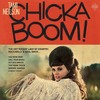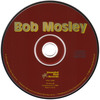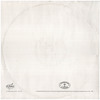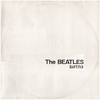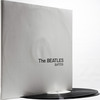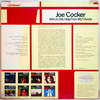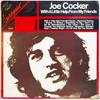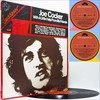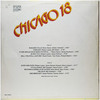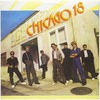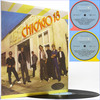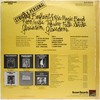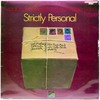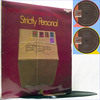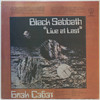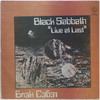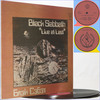Year: 29 October 1973 (US) 16 November 1973 (UK) (LP 1973)
Label: Apple Records, EMI Records (UK), PCS 7165, OC 062-05491
Style: Rock
Country: 9 October 1940 Liverpool, England
Time: 41:20
Format: Flac Tracks 16/44,1 kHz
Size: 251 Mb
Mind Games is, to my knowledge, the first release from the conceptual country Nutopia, whose existence John and Yoko proclaim in a Declaration on the lyric sheet. Oddly enough, it isn’t all that different from the records he has been making in America these last few years. Those have revealed a steady decline from the high points of his post-Beatle work, Plastic Ono Band and “Instant Karma.” There, he distilled his simplistic humanism into a single moving statement of belief — at once his most accessible and intelligent attempt at autobiography and philosophy.
With Imagine he began affecting attitudes bereft of emotional force. As he turned to petty gossip and didactic social commentary, his gambit of combining simple thoughts with simple music backfired. What was moving when applied to his own life was unbearably pretentious when used to offer aphorisms concerning larger issues.
Musically, Mind Games is a return to the form of Plastic Ono Band, employing some of the same simple chord progressions, similar instrumentation, and tunes that on closer inspection prove devoid of melodies, consisting only of pleasant collections of pop song, gospel and folk-rock cliches, particularly dependent on Dylan’s apocalyptic mid-Sixties style.
The album’s music might have served as the basis for a good LP if it had been paired with some new lyrical insight and passion. But instead, Lennon has come up with his worst writing yet. With lines like, “A million heads are better than one/So come on, get it on,” a listener can only accept or reject them. I’ve done the latter.
Lennon’s lyrics aren’t offensive, per se — just misguided in so underrating his audience’s intelligence. John Lennon’s admirers do not need to be preached at about the importance of love. They might even be able to withstand something more challenging than the repetition of the hollow shells of ideas they already share. But then, perhaps Lennon’s didacticism, preaching and banality are part of the mind game of the album’s title, yet another attempt to push his luck to the brink of self-annihilation.
Mind Games remains listenable, which is certainly more than can be said for Some Time in New York City. Lennon’s voice is in good shape, his production a cut above average and his performance occasionally forces us to take him more seriously than we would if he seemed less determined. “Mind Games,” “One Day,” “Intuition” and “Only People” (with some lines remarkably reminiscent of “Revolution”) all have one or another touch to recommend at least a few listenings.
Mind Games reveals another major artist of the Sixties lost in the changing social and musical environment of the Seventies, helplessly trying to impose his own gargantuan ego upon an audience that has already absorbed his insights and is now waiting hopefully for him to chart a new course.
(Rolling Stone magazine; By Jon Landau, January 3, 1974 5:00AM ET)
01. A1 Mind Games (04:14)
02. A2 Tight As (03:40)
03. A3 Aisumasen (I'm Sorry) (04:48)
04. A4 One Day (At a Time) (03:11)
05. A5-A6 Bring on the Lucie (Freda Peeple) A6 Nutopian International Anthem (04:16)
06. B1 Intuition (03:12)
07. B2 Out the Blue (03:25)
08. B3 Only People (03:30)
09. B4 I Know (I Know) (03:52)
10. B5 You Are Here (04:15)
11. B6 Meat City (02:52)
Listen. Full Album: John Lennon - Mind Games (1973) [Vinyl Rip]
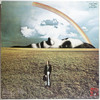
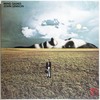
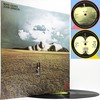
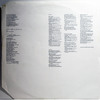
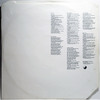

Mega4up
Label: Apple Records, EMI Records (UK), PCS 7165, OC 062-05491
Style: Rock
Country: 9 October 1940 Liverpool, England
Time: 41:20
Format: Flac Tracks 16/44,1 kHz
Size: 251 Mb
Mind Games is, to my knowledge, the first release from the conceptual country Nutopia, whose existence John and Yoko proclaim in a Declaration on the lyric sheet. Oddly enough, it isn’t all that different from the records he has been making in America these last few years. Those have revealed a steady decline from the high points of his post-Beatle work, Plastic Ono Band and “Instant Karma.” There, he distilled his simplistic humanism into a single moving statement of belief — at once his most accessible and intelligent attempt at autobiography and philosophy.
With Imagine he began affecting attitudes bereft of emotional force. As he turned to petty gossip and didactic social commentary, his gambit of combining simple thoughts with simple music backfired. What was moving when applied to his own life was unbearably pretentious when used to offer aphorisms concerning larger issues.
Musically, Mind Games is a return to the form of Plastic Ono Band, employing some of the same simple chord progressions, similar instrumentation, and tunes that on closer inspection prove devoid of melodies, consisting only of pleasant collections of pop song, gospel and folk-rock cliches, particularly dependent on Dylan’s apocalyptic mid-Sixties style.
The album’s music might have served as the basis for a good LP if it had been paired with some new lyrical insight and passion. But instead, Lennon has come up with his worst writing yet. With lines like, “A million heads are better than one/So come on, get it on,” a listener can only accept or reject them. I’ve done the latter.
Lennon’s lyrics aren’t offensive, per se — just misguided in so underrating his audience’s intelligence. John Lennon’s admirers do not need to be preached at about the importance of love. They might even be able to withstand something more challenging than the repetition of the hollow shells of ideas they already share. But then, perhaps Lennon’s didacticism, preaching and banality are part of the mind game of the album’s title, yet another attempt to push his luck to the brink of self-annihilation.
Mind Games remains listenable, which is certainly more than can be said for Some Time in New York City. Lennon’s voice is in good shape, his production a cut above average and his performance occasionally forces us to take him more seriously than we would if he seemed less determined. “Mind Games,” “One Day,” “Intuition” and “Only People” (with some lines remarkably reminiscent of “Revolution”) all have one or another touch to recommend at least a few listenings.
Mind Games reveals another major artist of the Sixties lost in the changing social and musical environment of the Seventies, helplessly trying to impose his own gargantuan ego upon an audience that has already absorbed his insights and is now waiting hopefully for him to chart a new course.
(Rolling Stone magazine; By Jon Landau, January 3, 1974 5:00AM ET)
01. A1 Mind Games (04:14)
02. A2 Tight As (03:40)
03. A3 Aisumasen (I'm Sorry) (04:48)
04. A4 One Day (At a Time) (03:11)
05. A5-A6 Bring on the Lucie (Freda Peeple) A6 Nutopian International Anthem (04:16)
06. B1 Intuition (03:12)
07. B2 Out the Blue (03:25)
08. B3 Only People (03:30)
09. B4 I Know (I Know) (03:52)
10. B5 You Are Here (04:15)
11. B6 Meat City (02:52)
Listen. Full Album: John Lennon - Mind Games (1973) [Vinyl Rip]






Mega4up


